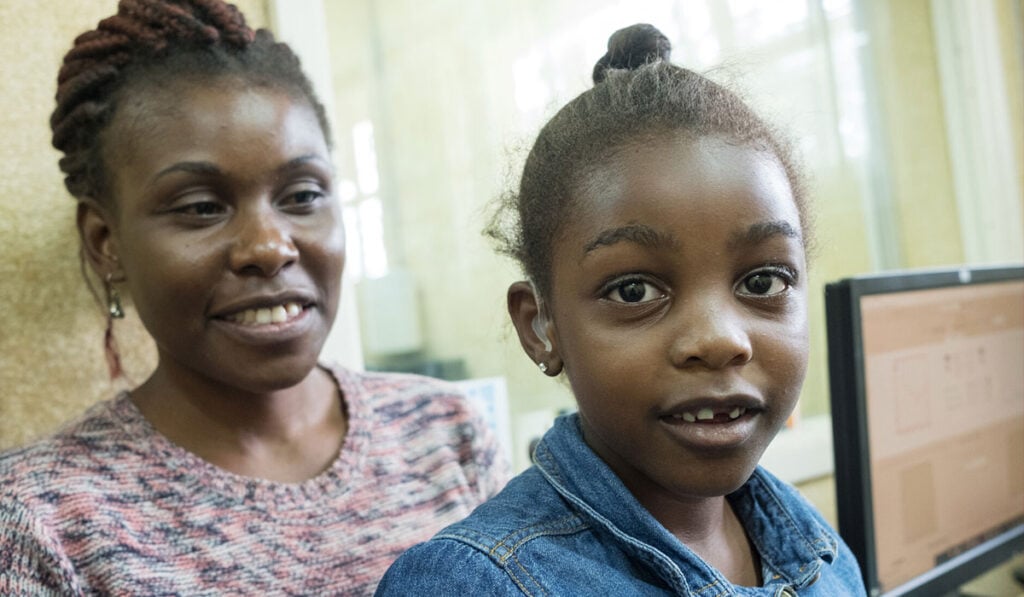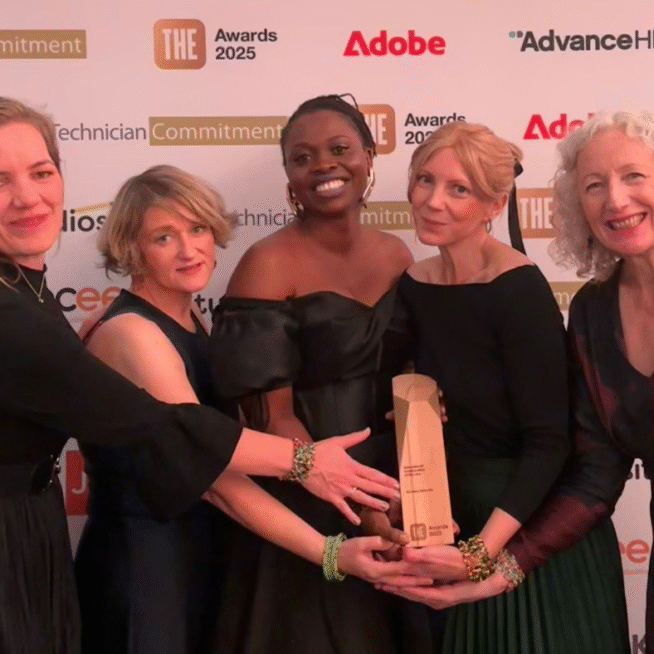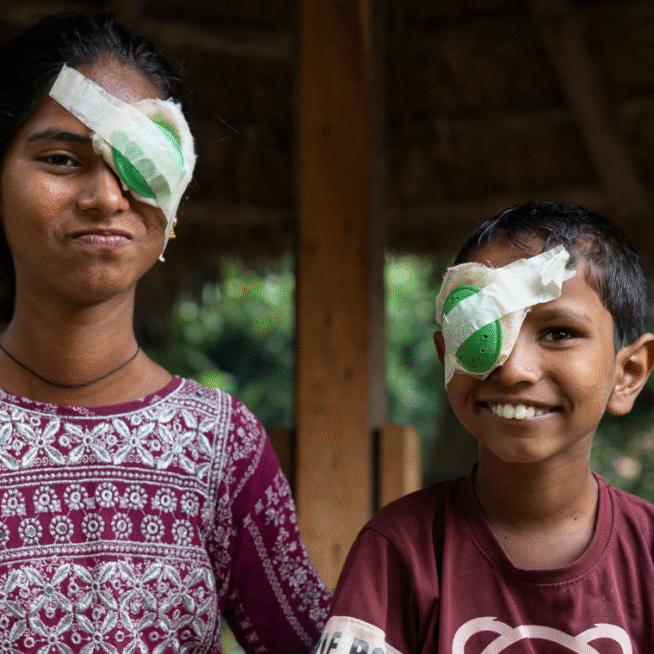Want to transform lives with us? Stay in touch and hear about our news, activities and appeals by email!
World Hearing Day 2023 – Improving hearing care in Zambia

3 March is World Hearing Day. Each year, this day raises awareness on how to prevent deafness and hearing loss, and promotes ear and hearing care across the world. This year’s theme is the importance of integrating ear and hearing care within primary care, as an essential component of universal health coverage. This has been one of the key elements of our five-year PrevENT project in Zambia – an Ear and Hearing Care project, supported by the Scottish Government, which came to an end last year. Here, we reflect back and celebrate key learnings from PrevENT.
Improving ear and hearing care in Zambia
In Zambia, just one audiologist and five ear, nose and throat (ENT) specialists serve a population of more than 19 million people.
The impact of hearing loss is serious and far-reaching. It is both a cause and consequence of poverty. It is an under-recognised consequence of major diseases – and sometimes their treatments. Adults with hearing loss often face unemployment, and communication barriers affect relationships as well as access to information and services. In children it leads to poor language and cognitive development, and routinely results in a struggle to access education. Hardship and stigma are a reality for all ages and genders.
With our partner Beit Cure Hospital, our PrevENT project worked from 2017 to 2022 to improve ear and hearing care in three Central Province districts in Zambia. For more than one million people living in Central Province, this project marks the availability of formal, integrated community and specialist ear and hearing care services for the very first time. During the course of the project:
- 106 primary health facilities have been provided with necessary ear care equipment and medical supplies
- 13 audiology technicians and 127 nurses and clinical officers have been trained in ear and hearing healthcare, including hearing loss identification, treatment of common ear diseases, referral pathways and health promotion
- 237 community based volunteers have been trained in healthcare promotion
Together, these healthcare workers have delivered an incredible 120,000 consultations and services! As long as services are maintained, this number stands to increase substantially in the coming years. This project has been a success not only for the individuals who were able to access treatment, but also in substantially strengthening local systems for years to come.
An independent evaluation from the University of Edinburgh agreed that PrevENT led to many positive changes: an increased awareness of ear health issues; reduced community stigma; and improved access to appropriate services for people with ear and hearing conditions.
“Stigma does exist, most people are subject to vulgar comments and exclusion. But the response to the programme has been positive, and over time, stigma has reduced.” Community Volunteer
Tobile’s story
“I first realised that Tobile has serious hearing problems when she didn’t start talking like other children” explains her Mum, Clara. “Tobile went to school but she wasn’t able to interact. She was treated badly by the other children and also by the teachers.”
Beit CURE Hospital diagnosed that Tobile was deaf in her left ear; with the right ear she could hear just a little bit.
When Tobile was fitted with a hearing aid, all of a sudden she looked very much surprised. The audiology technician asked her: “How old are you?” “Six”, she responded. Her Mum couldn’t believe it, and needed to control her tears. “Can you hear me?” she whispered. “Yes, I can hear everything, Mama!” Tobile smiled.
Before leaving, Tobile walked with her Mum through the backyard of the hospital. First, she was a bit shy beside her mother, then all of a sudden, she shouted: “I can her the birds!” Tobile smiled and ran around with her arms outstretched. Clara just laughed. That is pure happiness!

Project Evidence Brief: Lessons from the PrevENT project
We have published the key findings of this project in the first of our new series of CBM Project Evidence Briefs. The Brief provides an outline of how to improve ear and hearing services in resource-constrained settings.
“Without a united approach like this, which develops comprehensive services, you can overdevelop outreach without services, and it cannot work. This model needs to be recognised as a success.” Dr Alfred Mwamba
Read the Project Evidence Brief [opens in new tab]
Six year old Tobile was fitted with a hearing aid by our partners Beit CURE Hospital in Zambia. Image Copyright: CBM/Daniel Hayduk




